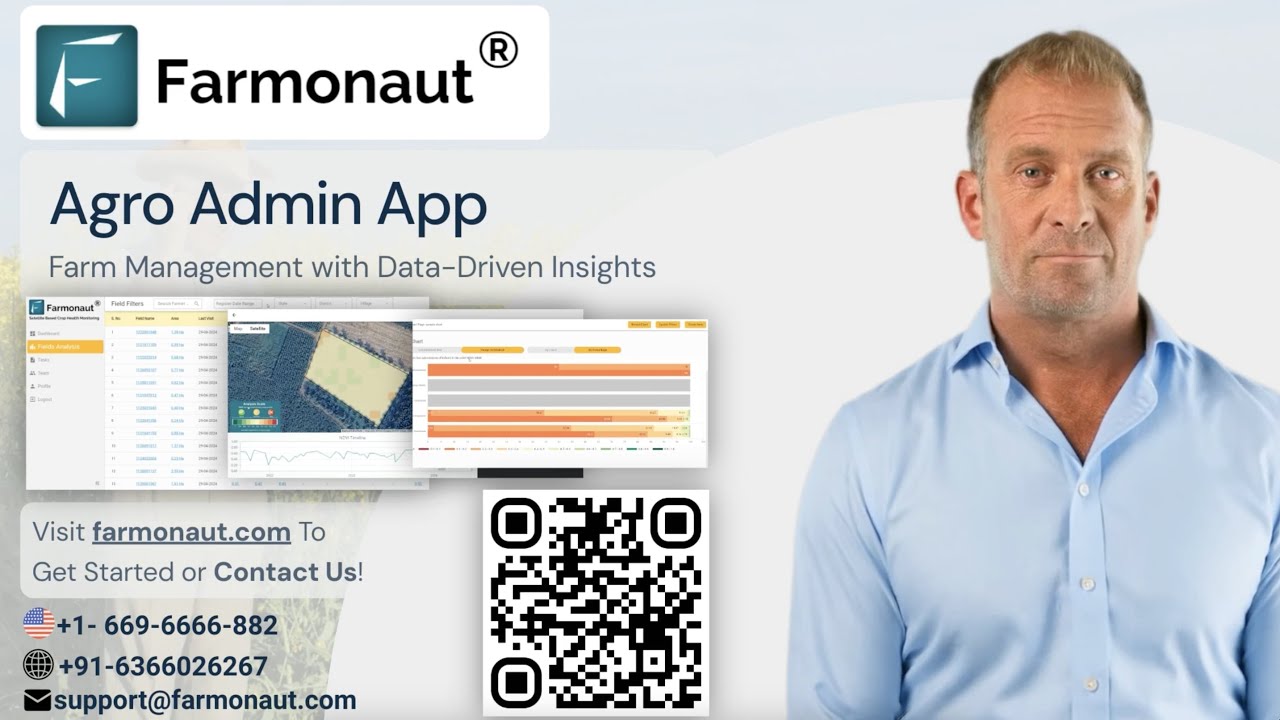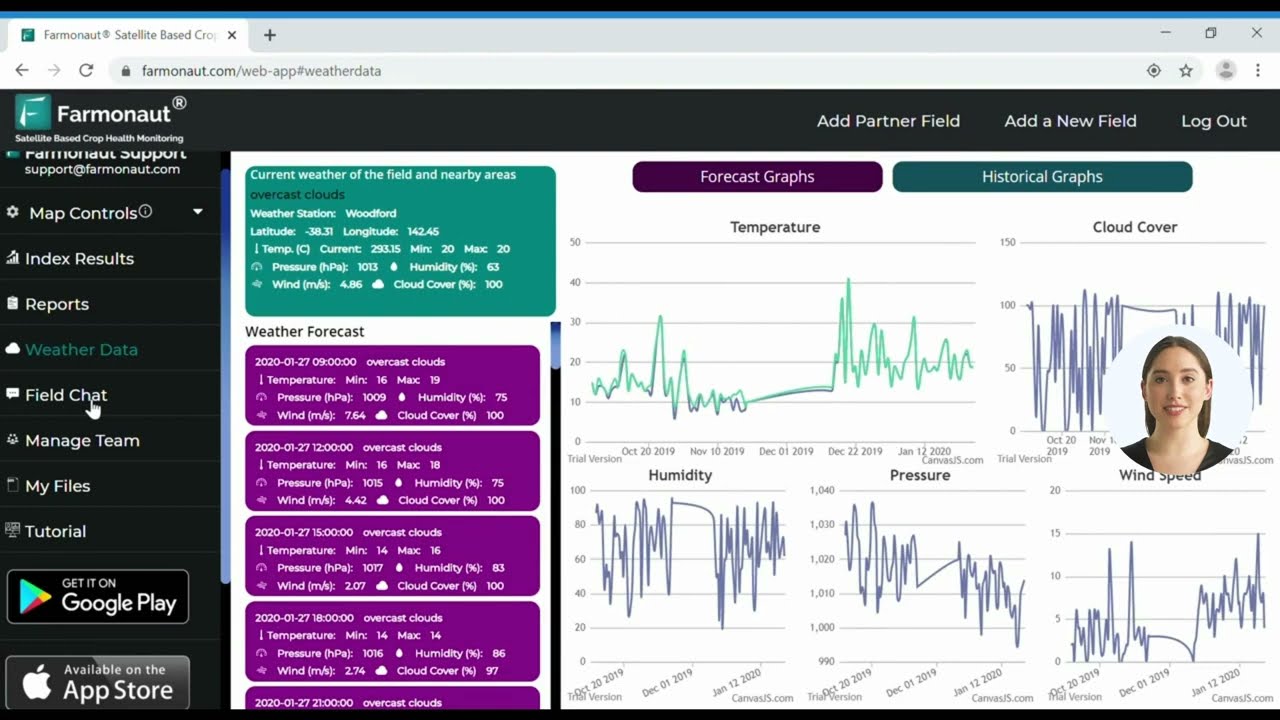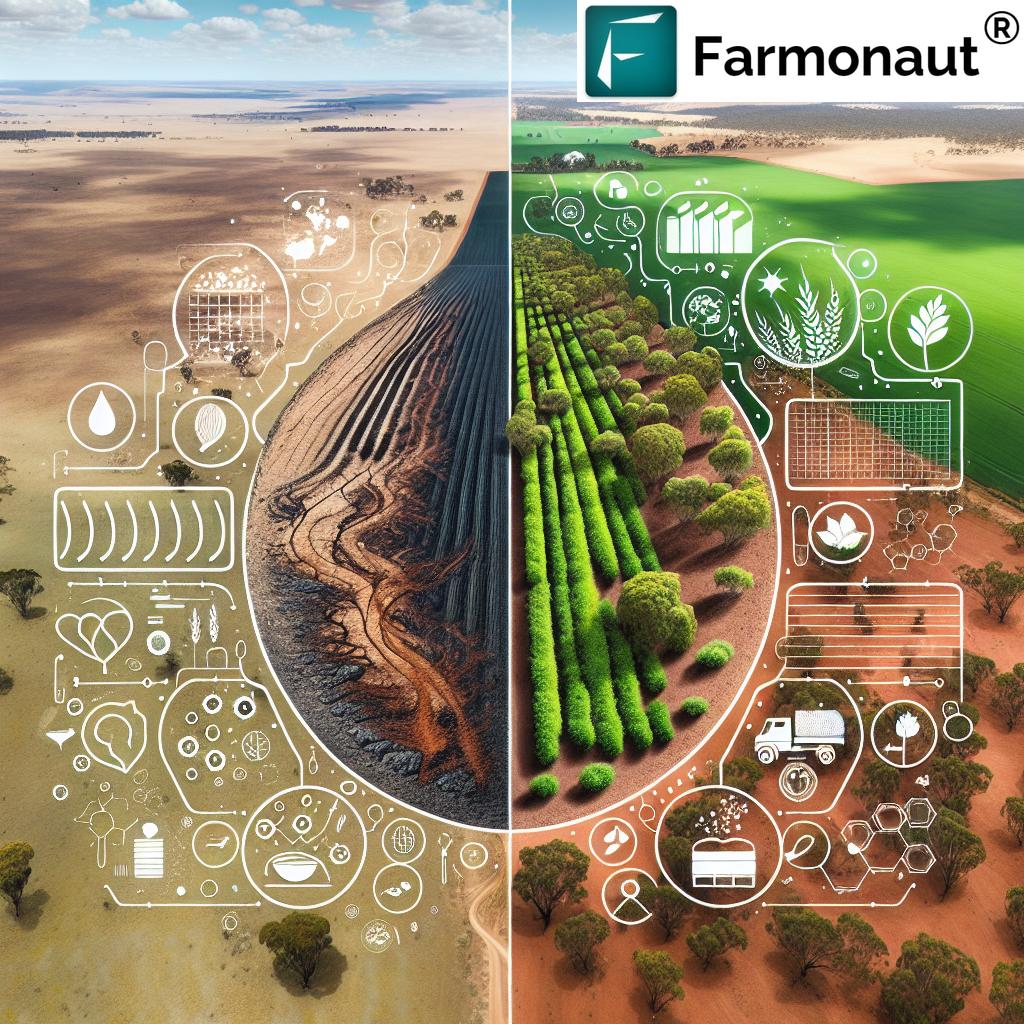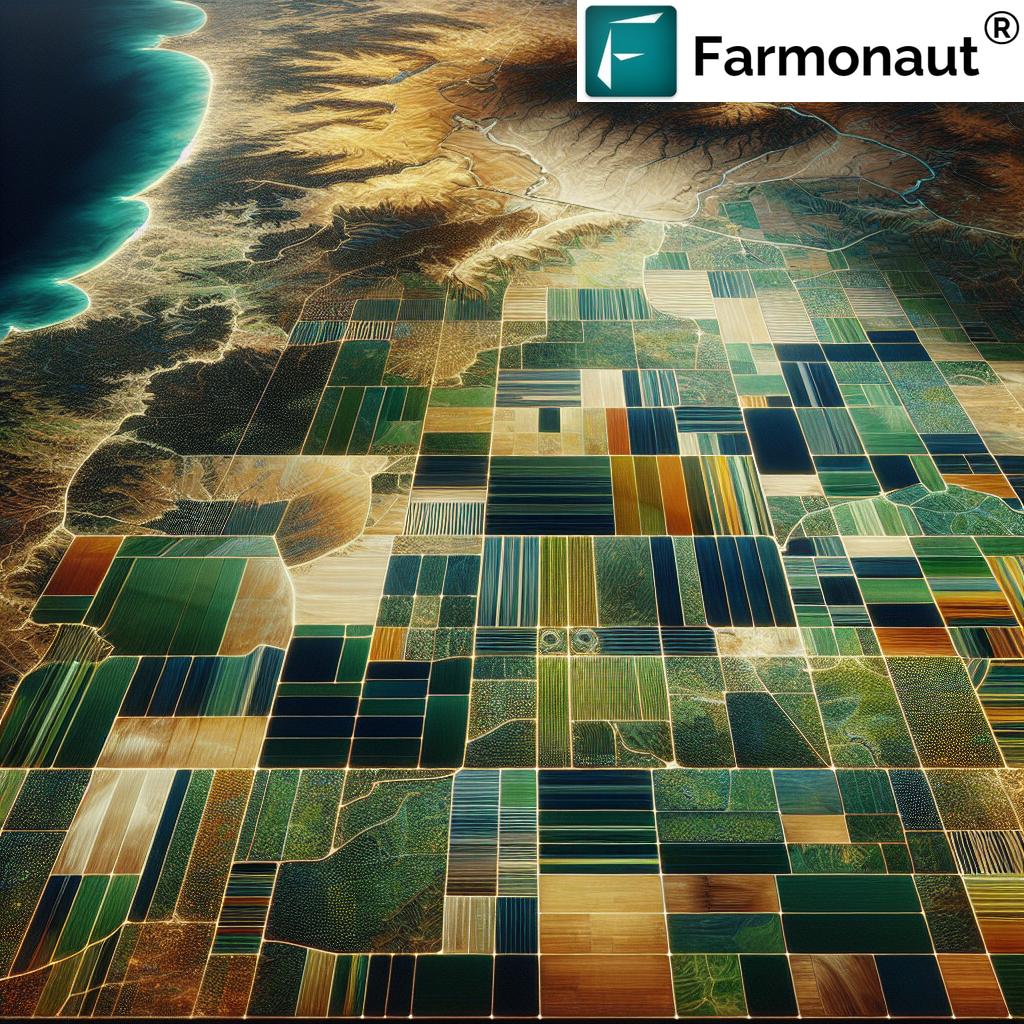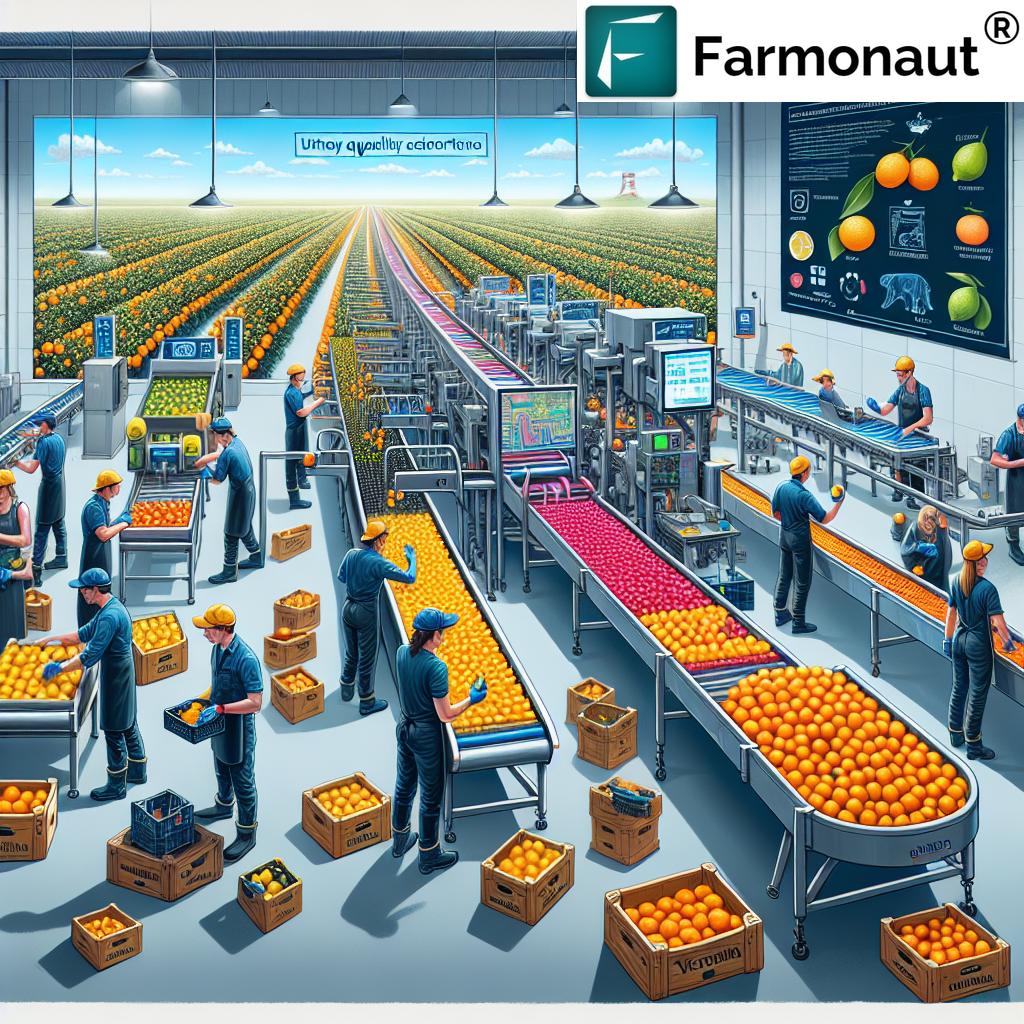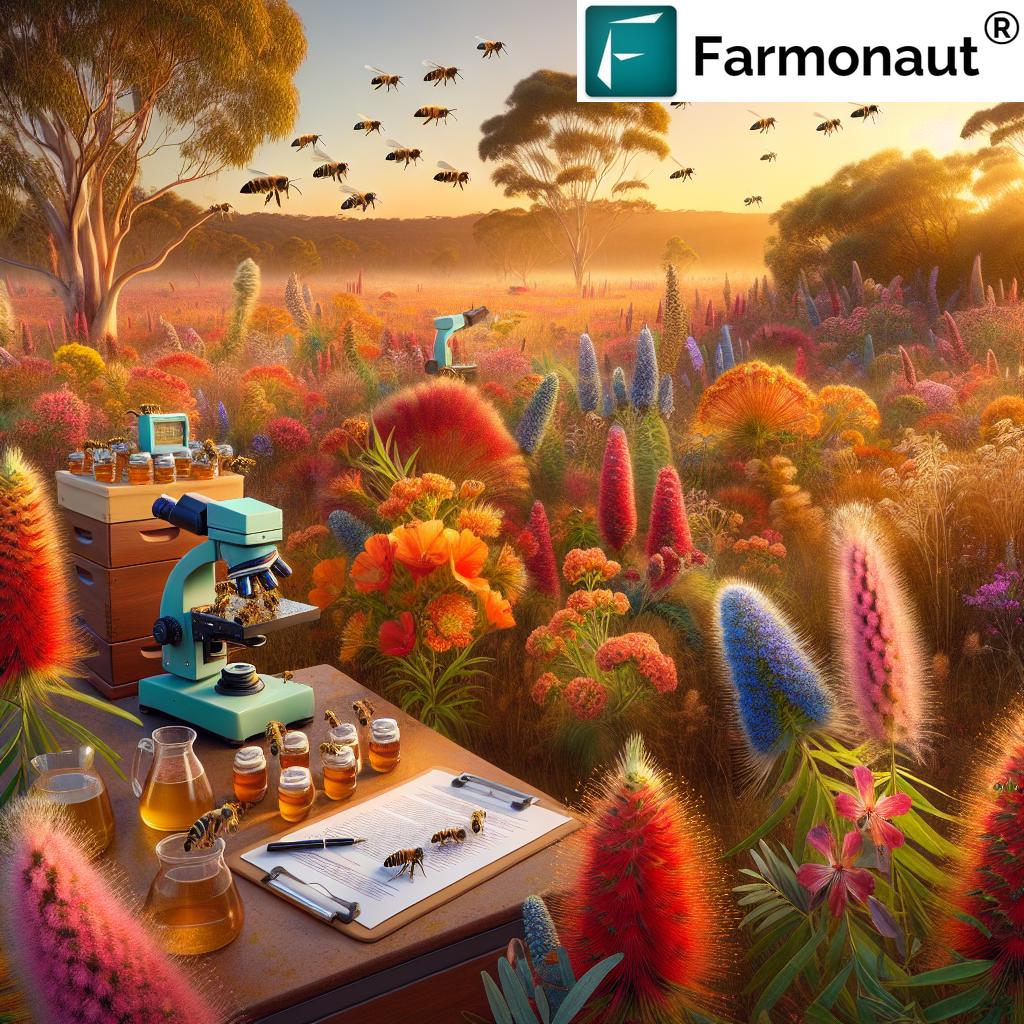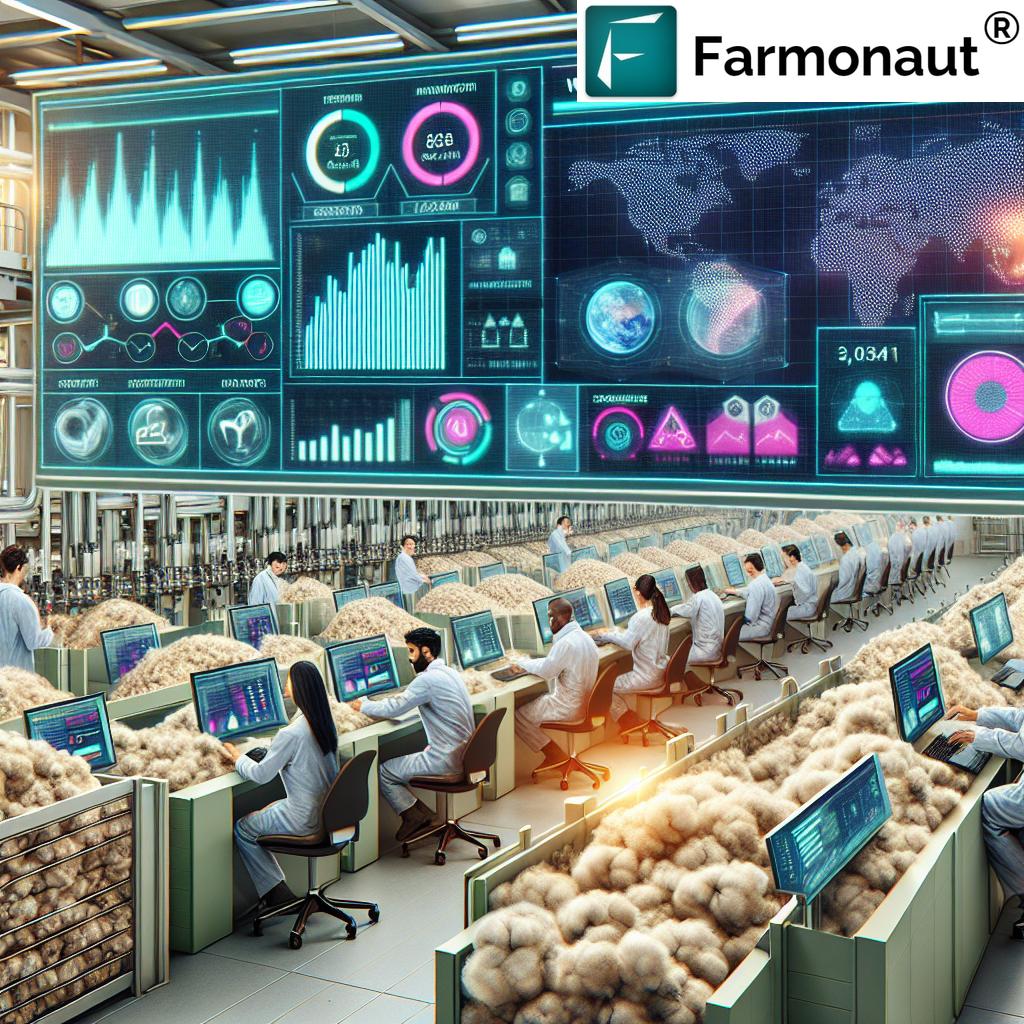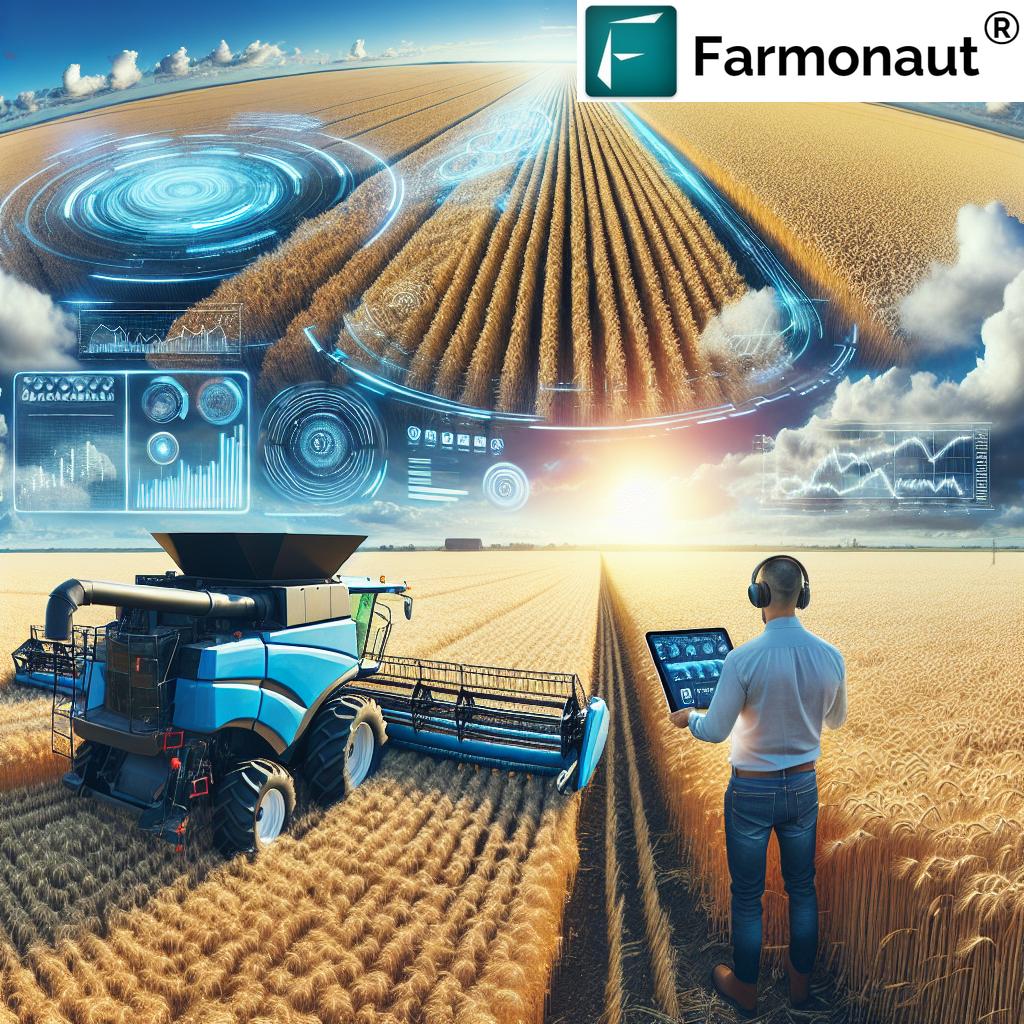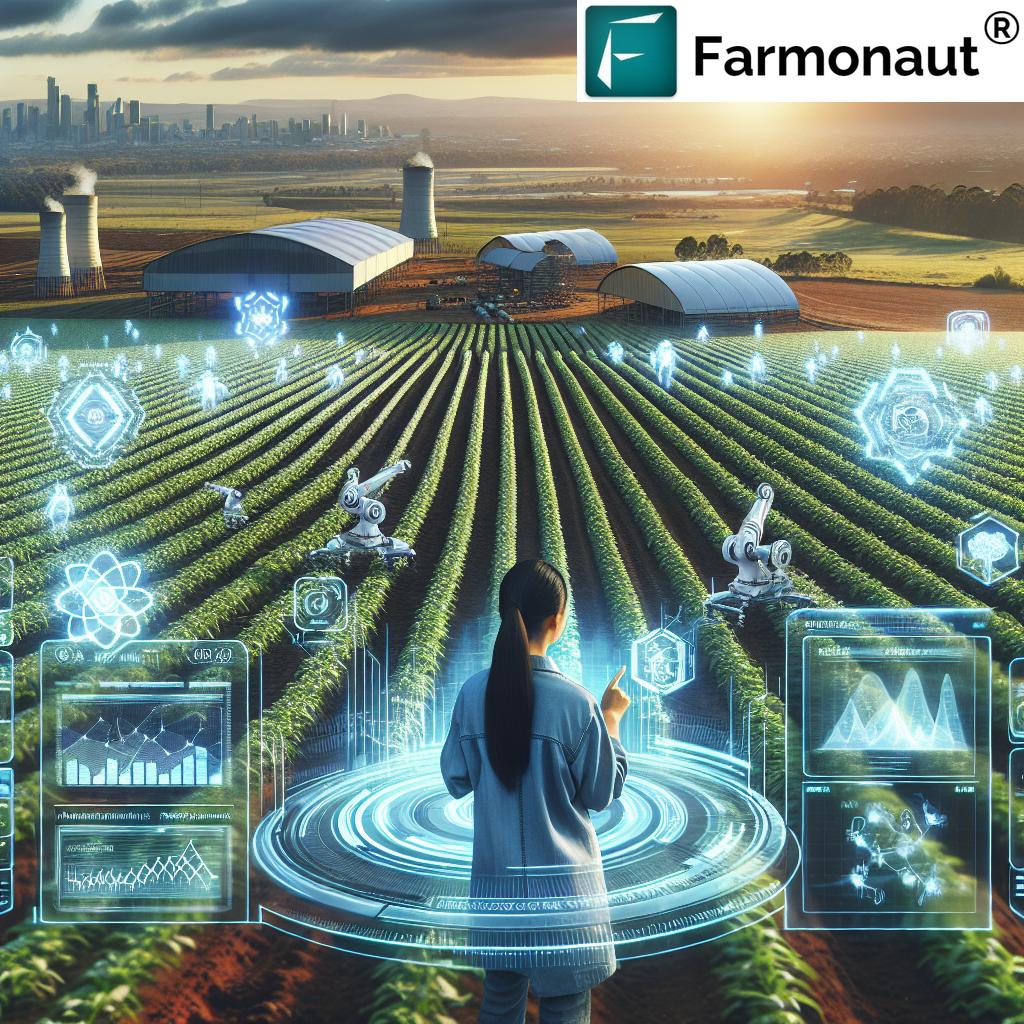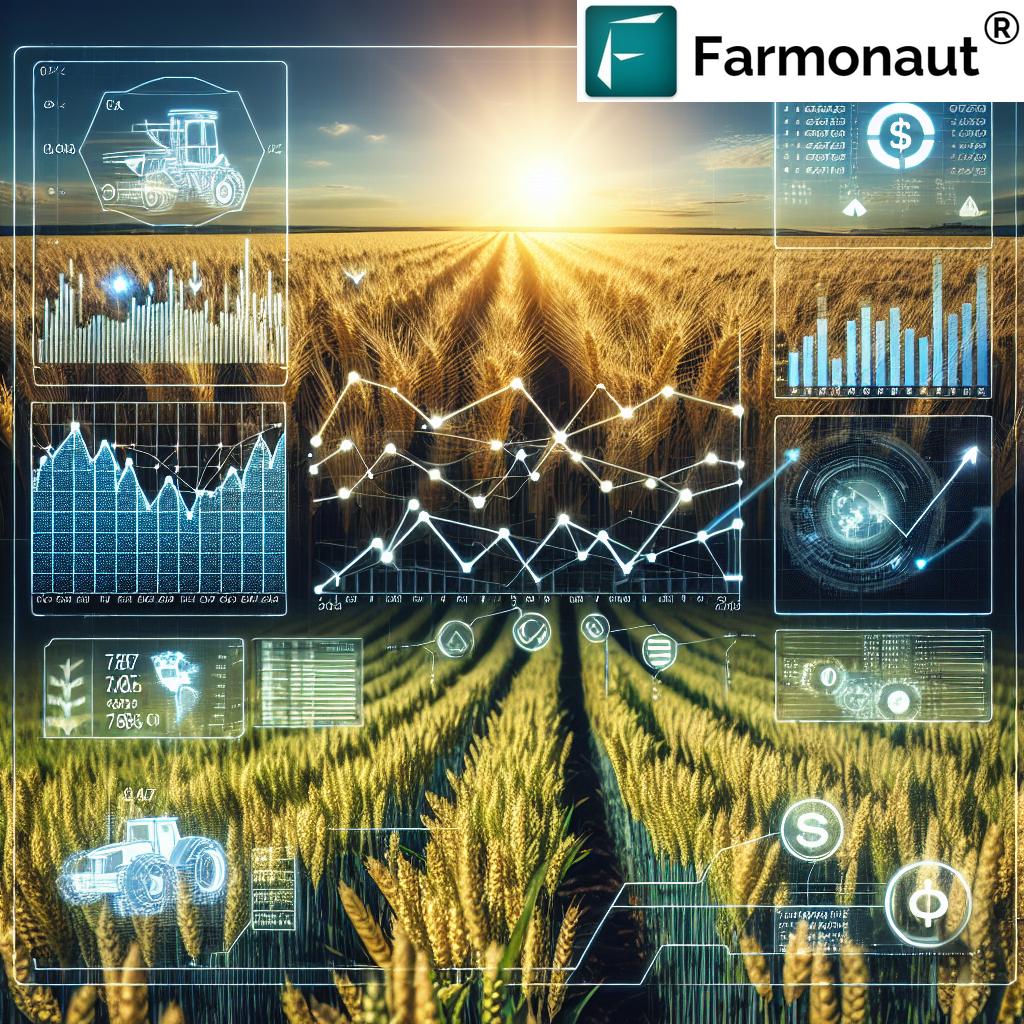Revolutionizing Australian Agriculture: How Digital Farm Management Boosts Efficiency in Riverina’s Cotton and Prune Production
“A 10,000-acre Australian farm in Riverina district adopted digital platforms to manage diverse crops including prunes, maize, and cotton.”
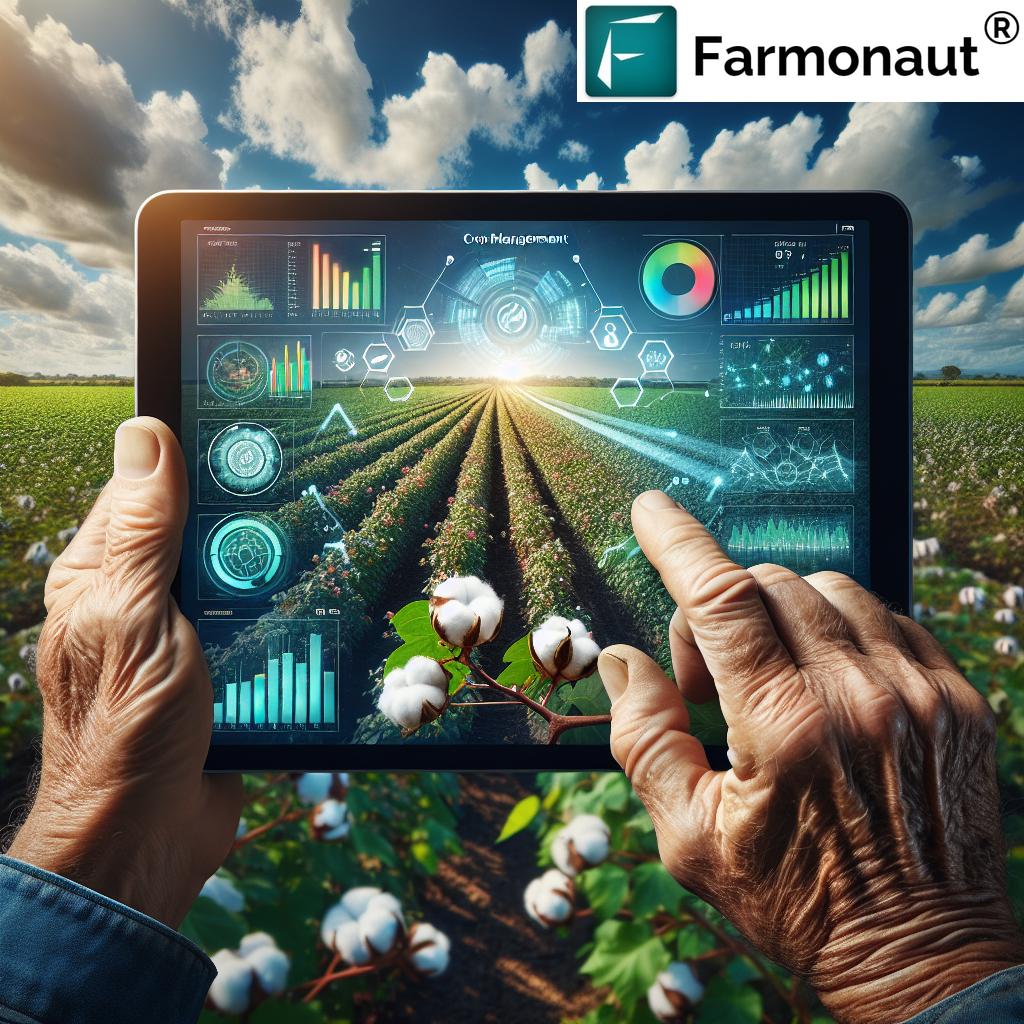
In the heart of Australia’s agricultural landscape, a revolution is taking place. The Riverina district, known for its diverse crop production, is witnessing a transformation in farm management practices. As we delve into this exciting shift, we’ll explore how precision agriculture software and digital record keeping for agriculture are reshaping the way farms operate in this region.
The Digital Dawn in Riverina’s Agriculture
The Riverina district, nestled in New South Wales (NSW), has long been a cornerstone of Australian agriculture. With its fertile soils and favorable climate, it’s home to a variety of crops, including cotton, prunes, and maize. However, managing such diverse operations across vast expanses presents unique challenges. This is where farm data management solutions come into play, offering a new frontier for efficiency and productivity.
- Streamlined operations across 10,000 acres
- Diverse crop management including cotton, prunes, and maize
- Integration of cutting-edge crop management technology
As we witness this transition, it’s crucial to understand the pivotal role that digital innovation plays in modern farming. Let’s explore how these technologies are not just changing the game but redefining it entirely.
The Challenge: Managing Complexity in Large-Scale Farming
Large-scale farming operations in Riverina face a myriad of challenges. From tracking spraying operations across thousands of hectares to meeting stringent certification requirements for diverse crops like prunes and cotton, the complexity can be overwhelming. Traditional methods of record-keeping and management often fall short, leading to inefficiencies and potential compliance issues.
- Difficulty in accurate tracking of spraying operations
- Challenges in meeting certification requirements for multiple crops
- Inefficiencies in communication and data sharing among team members
These challenges underscore the need for a more robust, technologically advanced approach to farm management. Enter the world of digital solutions and agtech for large-scale farming.
The Solution: Embracing Digital Farm Management
The adoption of a comprehensive digital platform marks a significant turning point for Riverina’s agricultural landscape. This digital transformation in agriculture brings about a suite of tools designed to address the specific needs of large-scale, diverse farming operations.
- Real-time data access and sharing
- Automated record-keeping for spraying and other operations
- Integrated compliance management tools
By leveraging these digital tools, farms in the Riverina district are not just keeping up with modern agricultural demands; they’re setting new standards for efficiency and productivity.
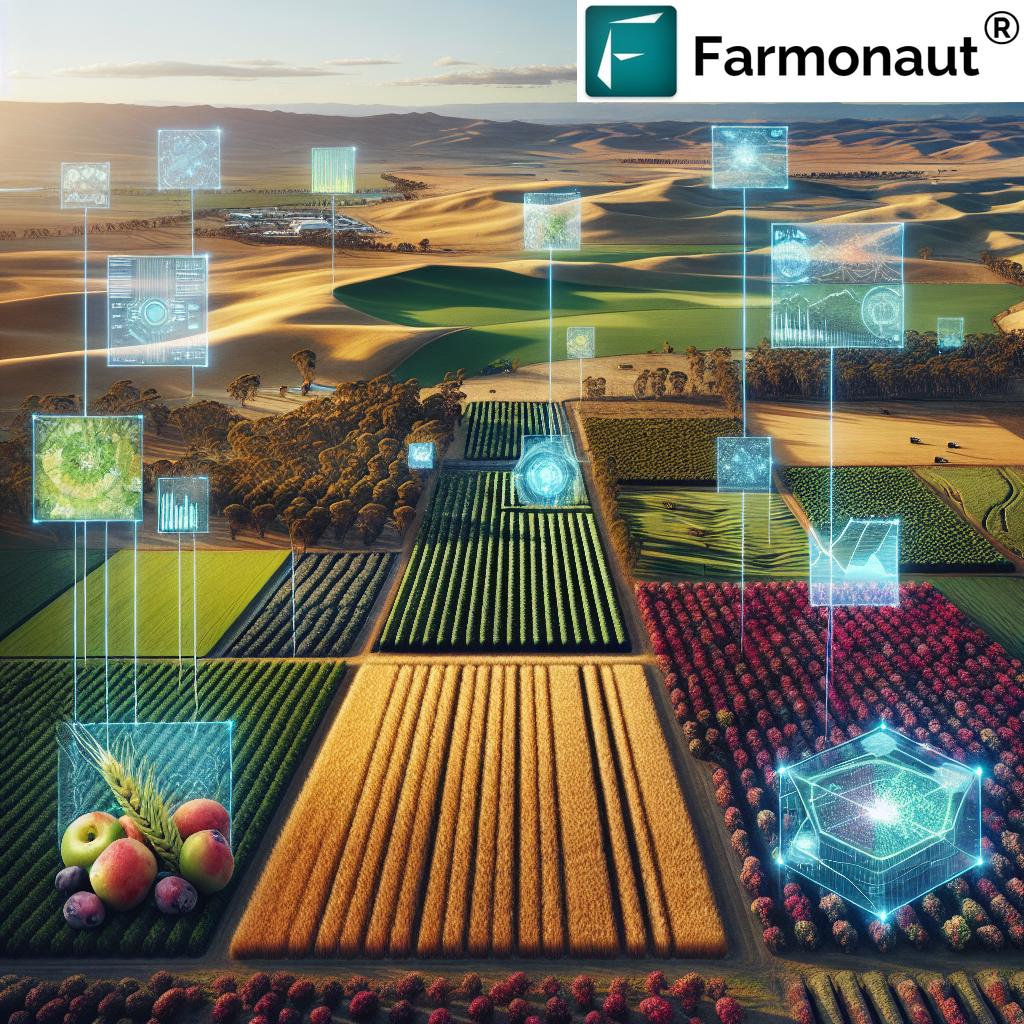
“Digital farm management solutions streamlined record-keeping for spraying operations across thousands of acres, enhancing efficiency and regulatory compliance.”
Key Benefits of Digital Farm Management
The transition to digital farm management brings a host of benefits that are transforming the agricultural landscape in Riverina. Let’s explore these advantages in detail:
1. Enhanced Record-Keeping Accuracy
Digital platforms enable farmers to maintain precise records of all farming activities, from planting to harvesting. This level of accuracy is particularly crucial for:
- Tracking inputs applied to specific fields
- Monitoring crop rotations and yields
- Ensuring compliance with regulatory requirements
With digital tools, the margin for error in record-keeping is significantly reduced, leading to more informed decision-making and improved farm management practices.
2. Improved Team Communication
Effective communication is vital in large-scale farming operations. Digital platforms facilitate seamless information sharing among team members, contractors, and agronomists. This improved communication leads to:
- Better coordination of field activities
- Quicker response to potential issues
- Enhanced overall farm operation efficiency
By ensuring that everyone is on the same page, digital tools help eliminate misunderstandings and streamline operations across the entire farm.
3. Streamlined Compliance Management
Meeting regulatory requirements and certification standards is a significant challenge for farmers, especially those dealing with diverse crops like cotton and prunes. Digital farm management solutions offer:
- Automated compliance tracking
- Easy generation of reports for audits
- Real-time monitoring of certification criteria
This streamlined approach to compliance not only saves time but also reduces the stress associated with regulatory adherence.
4. Data-Driven Decision Making
One of the most significant advantages of digital farm management is the ability to make decisions based on comprehensive, real-time data. Farmers can:
- Analyze historical data to optimize crop rotation
- Use predictive analytics for pest and disease management
- Make informed decisions about resource allocation
This data-centric approach leads to more efficient use of resources and improved crop yields over time.
Implementing Digital Solutions in Riverina’s Diverse Crop Landscape
The implementation of digital farm management solutions in Riverina’s diverse agricultural setting presents both opportunities and challenges. Let’s explore how these digital tools are being adapted to meet the specific needs of different crops:
Cotton Production
Cotton, a major crop in the Riverina district, benefits significantly from digital management tools. The implementation of integrated pest management in cotton production is particularly noteworthy:
- Real-time monitoring of pest populations
- Precise application of pesticides
- Tracking of beneficial insects for biological control
These digital solutions not only improve cotton yields but also contribute to more sustainable farming practices by reducing unnecessary pesticide use.
Prune Orchards
For prune orchards, digital management tools offer unique advantages, especially in meeting prune orchard certification requirements:
- Detailed tracking of irrigation schedules
- Monitoring of fruit development stages
- Automated record-keeping for pruning and harvesting activities
These digital tools ensure that prune production meets the highest quality standards while simplifying the certification process.
Maize Cultivation
In maize production, digital farm management tools play a crucial role in optimizing yields and resource use:
- Precision planting based on soil analysis
- Variable rate application of fertilizers
- Yield mapping for continuous improvement
By leveraging these digital solutions, maize farmers in Riverina can significantly enhance their productivity and profitability.
The Role of Precision Agriculture Software
Precision agriculture software is at the heart of this digital revolution in Riverina’s farming practices. These sophisticated tools offer a range of functionalities that are transforming how farms operate:
- Satellite imagery for crop health monitoring
- GPS-guided machinery for precise field operations
- Soil moisture sensors for optimized irrigation
- Weather data integration for informed decision-making
By harnessing these technologies, farmers can make more precise decisions, leading to improved resource utilization and increased yields.
Overcoming Implementation Challenges
While the benefits of digital farm management are clear, implementing these systems can present challenges, especially for large-scale operations like those in Riverina. Some common hurdles include:
- Initial investment in technology and training
- Resistance to change from traditional methods
- Integration with existing farm equipment and practices
- Ensuring data security and privacy
Overcoming these challenges requires a strategic approach, including comprehensive training programs, phased implementation, and ongoing support from technology providers.
The Future of Digital Farming in Riverina
As we look to the future, the potential for digital farming in Riverina is immense. Emerging technologies and trends that are likely to shape the agricultural landscape include:
- Artificial Intelligence for predictive crop management
- Drone technology for advanced crop monitoring
- Blockchain for improved traceability in the supply chain
- Internet of Things (IoT) devices for real-time farm monitoring
These advancements promise to further revolutionize farming practices, making agriculture in Riverina more efficient, sustainable, and productive than ever before.
Comparative Analysis: Traditional vs. Digital Farm Management
To fully appreciate the impact of digital farm management, let’s compare it with traditional methods:
| Aspect | Traditional Methods | Digital Farm Management |
|---|---|---|
| Record-keeping Time | 4-6 hours daily | 1-2 hours daily |
| Data Accuracy | Prone to human error | High accuracy with automated systems |
| Team Communication | Often fragmented and delayed | Real-time, centralized communication |
| Compliance Management | Time-consuming manual processes | Automated tracking and reporting |
| Real-time Data Access | Limited or non-existent | Instant access from anywhere |
| Integrated Pest Management | Reactive, based on visible symptoms | Proactive, data-driven approach |
| Operational Efficiency | Variable, dependent on individual expertise | Consistently high with data-backed decisions |
This comparison clearly illustrates the significant advantages that digital farm management brings to modern agriculture.
The Role of Farmonaut in Digital Farm Management
In the evolving landscape of digital farm management, Farmonaut stands out as a pioneering provider of advanced agricultural technology solutions. Leveraging satellite-based farm management tools, Farmonaut offers a comprehensive platform that aligns perfectly with the needs of large-scale farming operations like those in Riverina.
- Real-time crop health monitoring using satellite imagery
- AI-driven advisory systems for personalized farm management
- Blockchain-based traceability solutions for supply chain transparency
- Advanced resource and fleet management tools
Farmonaut’s solutions are designed to make precision agriculture more accessible and affordable, catering to farms of all sizes. The platform’s ability to provide valuable insights through satellite data analysis can significantly enhance decision-making processes in cotton, prune, and maize production.
For more information on how Farmonaut can revolutionize your farming practices, visit their web app or explore their API solutions.
Conclusion: Embracing the Digital Future of Farming
The adoption of digital farm management solutions in Riverina’s agricultural sector marks a significant leap towards more efficient, sustainable, and productive farming practices. By embracing these technologies, farmers are not just overcoming the challenges of large-scale, diverse crop management; they’re setting new standards for modern agriculture.
As we’ve seen, the benefits of digital transformation in agriculture are manifold:
- Enhanced operational efficiency and productivity
- Improved compliance management and certification processes
- Data-driven decision making for optimal resource utilization
- Better team communication and coordination
- Sustainable farming practices through precision agriculture
The journey of Riverina’s farms towards digital adoption serves as a compelling case study for the broader agricultural community. It demonstrates that with the right tools and approach, even the most complex farming operations can be streamlined and optimized.
As we look to the future, it’s clear that digital farm management will play an increasingly crucial role in shaping the agricultural landscape. For farmers in Riverina and beyond, embracing these technologies is not just about keeping up with the times; it’s about leading the charge into a new era of smart, sustainable, and highly efficient farming.
FAQs
- Q: How does digital farm management improve compliance with agricultural regulations?
A: Digital farm management systems automate record-keeping and provide real-time tracking of farming activities, making it easier to generate accurate reports for regulatory compliance and audits. - Q: Can digital farm management solutions be customized for different crop types?
A: Yes, most digital farm management platforms offer customizable features to accommodate the specific needs of various crops, from cotton to prunes and maize. - Q: What is the initial investment required for implementing digital farm management systems?
A: The initial investment varies depending on the scale of the operation and the specific technologies adopted. However, many solutions offer scalable options to suit different farm sizes and budgets. - Q: How does precision agriculture software contribute to sustainable farming practices?
A: Precision agriculture software enables more efficient use of resources like water and fertilizers, reduces chemical inputs through targeted applications, and helps in conservation efforts by providing detailed insights into land use. - Q: Are digital farm management tools suitable for small-scale farmers?
A: Yes, many digital farm management solutions are designed to be scalable and accessible to farmers of all sizes, offering benefits in efficiency and decision-making even for smaller operations.



